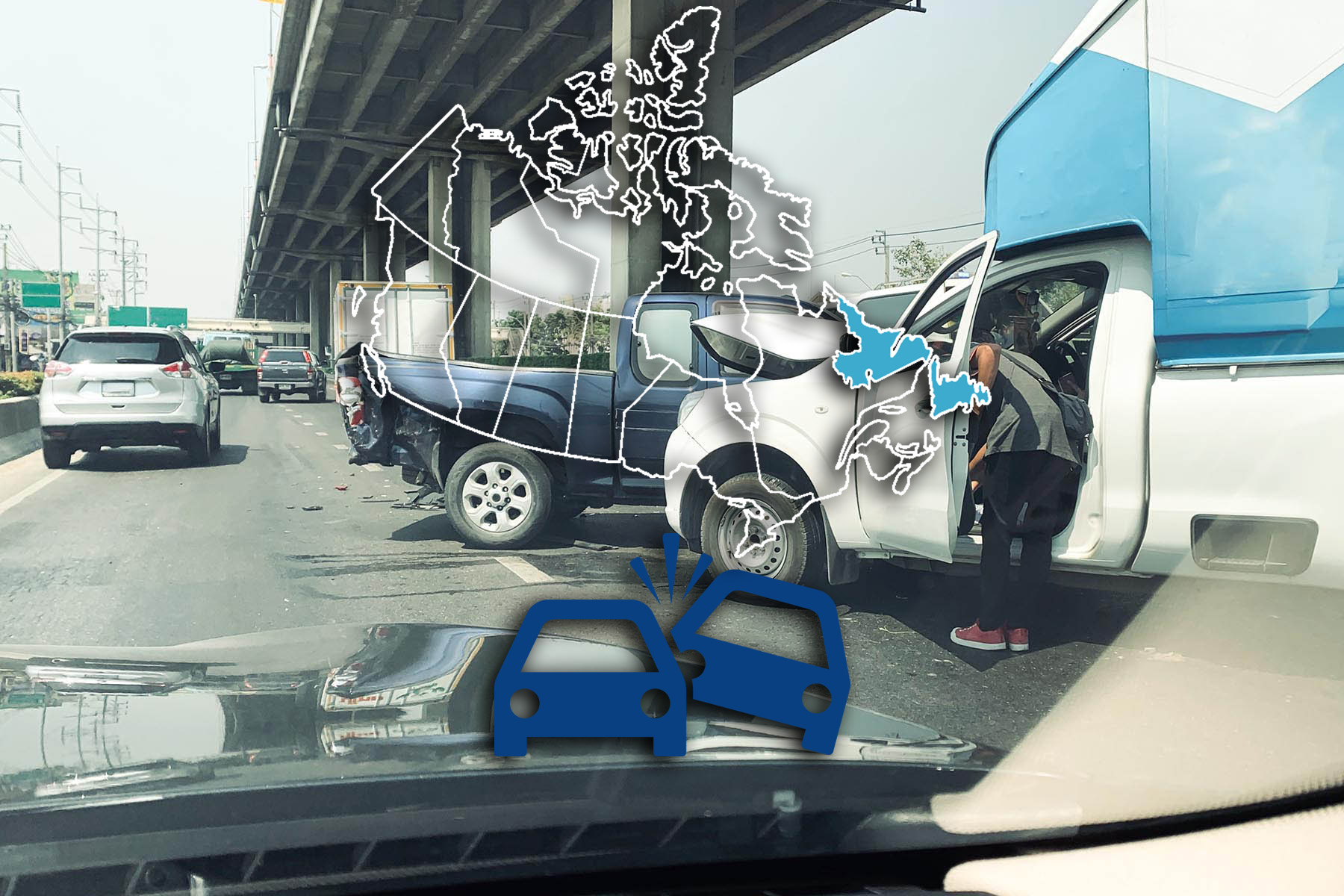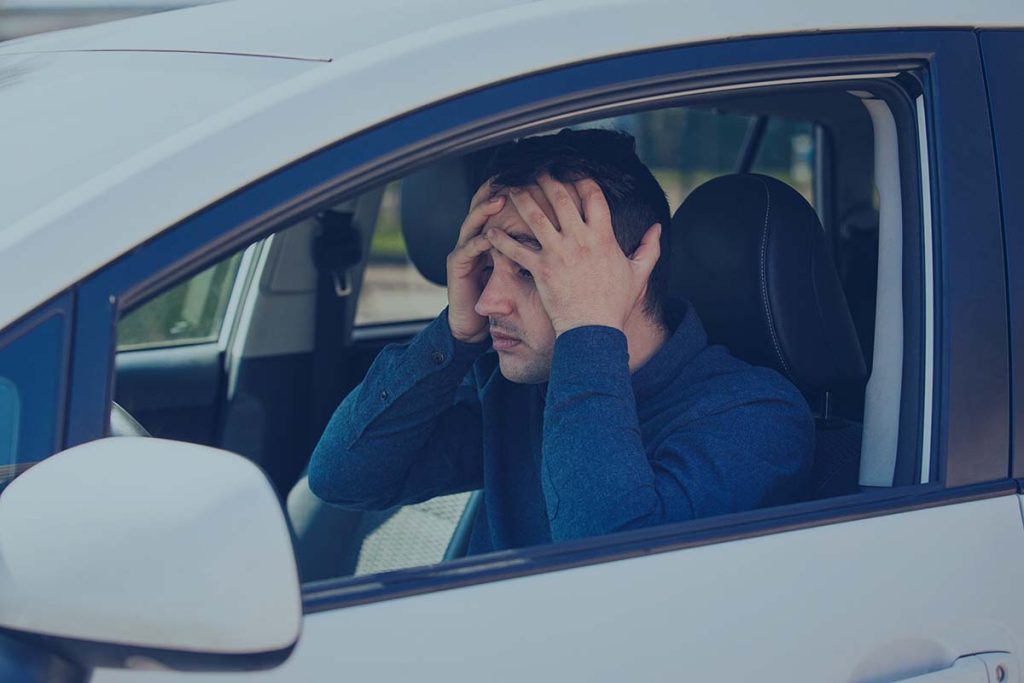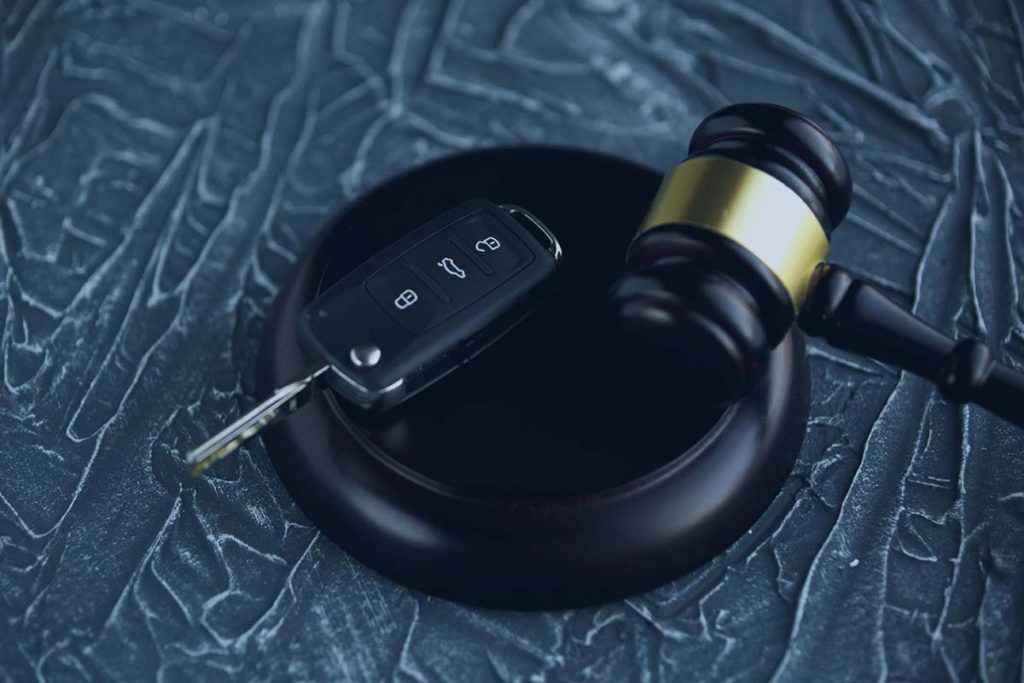
Newfoundland and Labrador Hit and Run Laws: What happens if someone leaves the scene of an accident?
- Newfoundland and Labrador Hit and Run Laws: What happens if someone leaves the scene of an accident?
- Newfoundland hit-and-run laws explained: Is leaving the scene of an accident a criminal offense?
- What to do after an accident in Newfoundland
- How long do you have to report an accident in Newfoundland?
- What is the penalty for leaving the scene of an accident in Newfoundland?
- Is Newfoundland an "at fault" province?
Under provincial laws, failure to remain at the scene of an accident in Newfoundland is punishable by a $450 fine or up to 15 days in jail. A hit and run driver will also face additional fines and possible jail time for failing to render assistance, exchange information, and failing to report. Under the Canadian criminal code, the maximum penalty is life in prison.
Quick take: What is happens if you leave the scene of an accident in Newfoundland?
- You may file a claim with your insurer if you suffer property damage.
- Victims who suffer injury may take civil action against the hit-and-run driver.
- A hit-and-run is a hybrid offense (Indictable/summary offence).
- Common defenses for leaving the scene of an accident include – you were unaware of involvement in a traffic collision, leaving the scene was involuntary, you feared that remaining at the scene would lead to more harm, and you fulfilled statutory obligations.
- Insurance is mandatory in Newfoundland and Labrador.
References
Newfoundland hit-and-run laws explained: Is leaving the scene of an accident a criminal offense?

Yes. Under Newfoundland and Labrador Highway Traffic Act and the Canadian Criminal Code, leaving the scene of an accident without fulfilling the obligations listed in section 169 of the highway traffic act is a criminal offense. Under Canadian law, a hit-and-run is a hybrid offense. Because of that, the facts of the case determine if the hit-and-run driver is guilty of an indictable or summary offense. For accidents not involving death, alcohol, aggressive driving, or serious injury, a hit and run driver will likely face charges under provincial laws.
That said. An accident becomes a crime if you do not do the following.
Duties of a driver at the scene of an accident in Newfoundland and Labrador
Section 169. “Accident Information” says that you must:
- Stop your vehicle at the scene.
- Give your name, address, or the name/address of the registered owner of the vehicle, and vehicle registration number.
- Upon request, you must exhibit your driver’s license to the struck person, property owner, or traffic officer present at the scene.
- Provide proof of insurance upon request from a traffic officer or person who sustained loss.
- Upon request or if it is apparent that immediate medical care is necessary, you must render reasonable assistance to anyone who needs it.
What to do after an accident in Newfoundland

The victim of a hit and run or accident may take civil action if they suffer injury. You may also file a claim with your insurer. Under the new legislation, you have 120 days to serve a written notice of your intention to take civil action. Additionally, claimants who suffer property damage may only get compensation from their insurer.
In short, if a person suffers serious injury or death, the hit and run driver may face criminal charges and a civil lawsuit. Consequently, what you should do immediately after an accident if you are the driver is:
- Stop and comply with the requirements listed above.
- Do not accept fault at the scene of an accident.
- Contact an attorney if anyone suffers death or serious injuries.
- Remain at the scene until traffic officers arrive.
- If the struck person requests it, or if it is apparent that immediate care is necessary, you may transport the individual/s to a physician or hospital.
- If capable, gather evidence. Take pictures, save dashcam footage, and collect witness testimonies and contact information.
What to do if you hit an unattended vehicle in Newfoundland
Under section 169 (2). If your vehicle collides with an unattended vehicle or property, you must make a reasonable effort to locate the owner or person attending the property. If you find the owner, give him your name, address, and registration number. Upon request, you must exhibit your driver’s license.
What if you cannot find the owner?
If you cannot find the owner, you must leave a note on a conspicuous section of the struck property.
You may also notify a local peace officer.
It is also worth noting that section 7 reads, quote:
“Where the accident referred to in subsection 6 (bicycle operation) results in death or injury to a person or injury to property causing total damage exceeding $250, the person in charge of the bicycle shall immediately make a written report of the accident and shall mail or deliver the report to the nearest peace officer or a police station.”
How long do you have to report an accident in Newfoundland?
Under section 170 of the Newfoundland and Labrador traffic act, you must immediately report any accident that results in death, injury, or property damage above $2000 using the quickest means of communication. You must also file a written report at the nearest police station.
If you are incapable of making a report, a passenger from your vehicle may make the report.
What if the driver is alone?
If you suffer injury or are unable to file a report, provincial laws require you to file the report as soon as you can.
Newfoundland and Labrador hit and run laws: what to remember:
- Garages in the province have a legal obligation to report any vehicle showing involvement in a serious accident.
- Failure to offer reasonable assistance, stop at the scene, and exchange information -are separate offenses.
- Filing a false report will lead to additional charges.
What is the penalty for leaving the scene of an accident in Newfoundland?

Under Newfoundland and Labrador traffic act, the penalty for leaving the scene of an accident without fulfilling the obligations above is:
- Failing to stop at the scene of an accident. Punishable by a minimum fine of $180 and a maximum of $450 or up to 15 days in jail.
- Failure to give name and address. Punishable by a maximum fine of $450 and up to 15 days in jail.
- Failure to render reasonable assistance. Punishable by a maximum fine of $450 and up to 15 days in jail
- Failure to notify the owner of the struck property. Punishable by a maximum fine of $400 and up to 14 days in jail.
Under the Canadian criminal code section 252, the penalty for leaving the scene of an accident is:
- Leaving the scene of an accident involving injury. Indictable offense, punishable by up to ten years in prison.
- Leaving the scene of an accident involving death or serious injury. Indictable offense, punishable by a maximum sentence of life in prison.
Civil and administrative penalties
As mentioned, if you suffer injury after a hit and run, you may take civil action against the driver. Consequently, the victim should do the following:
- Stop your vehicle and remain at the scene until you exchange information.
- If the hit-and-run driver flees, document anything that may help investigators including driver description, car make, vehicle colour, damage done to the vehicle, and so on.
- Call the police immediately.
- Contact your insurer.
- Seek medical care.
- Do not admit fault at the scene.
- Do not threaten or harm the other party involved.
Is Newfoundland an “at fault” province?
No. Under provincial laws, the court and insurance investigators designate fault after an accident. However, the province’s direct compensation model requires the “not at fault” party to file a claim with their insurer. In other words, you file a claim with your insurer.
If you decide to take civil action, you may sue the at-fault party for damages including pain and suffering, medical bills, or lost income in civil court.
We recommend consulting with a claims attorney if you decide to take civil action.
What if it is unclear who was at fault?

Newfoundland and Labrador comparative negligence act reads, quote:
“Where damage or loss has been caused by the fault of 2 or more persons, the court shall determine the degree in which each was at fault, and where 2 or more persons are found at fault they shall be jointly and individually liable to the person suffering damage or loss, but as between themselves, in the absence of a contract express or implied, they shall be liable to make a contribution to and indemnify each other in the degree in which they are respectively found to have been at fault.”
Additionally;
“Unless the judge otherwise directs, the liability for costs of the parties to an action shall be in the same proportion as their respective liability to make good the damage or loss, and where, as between 2 persons, 1 is entitled to a judgment for an excess of damage or loss and the other to a judgment for an excess of costs, there shall be a set-off of the respective amounts and judgment shall be given accordingly.”
What to remember:
- If you suffer property damage, you file a claim with your insurer.
- Persons who suffer injury may take civil action.
- The court and investigators designate fault after an accident.
Other Newfoundland Laws